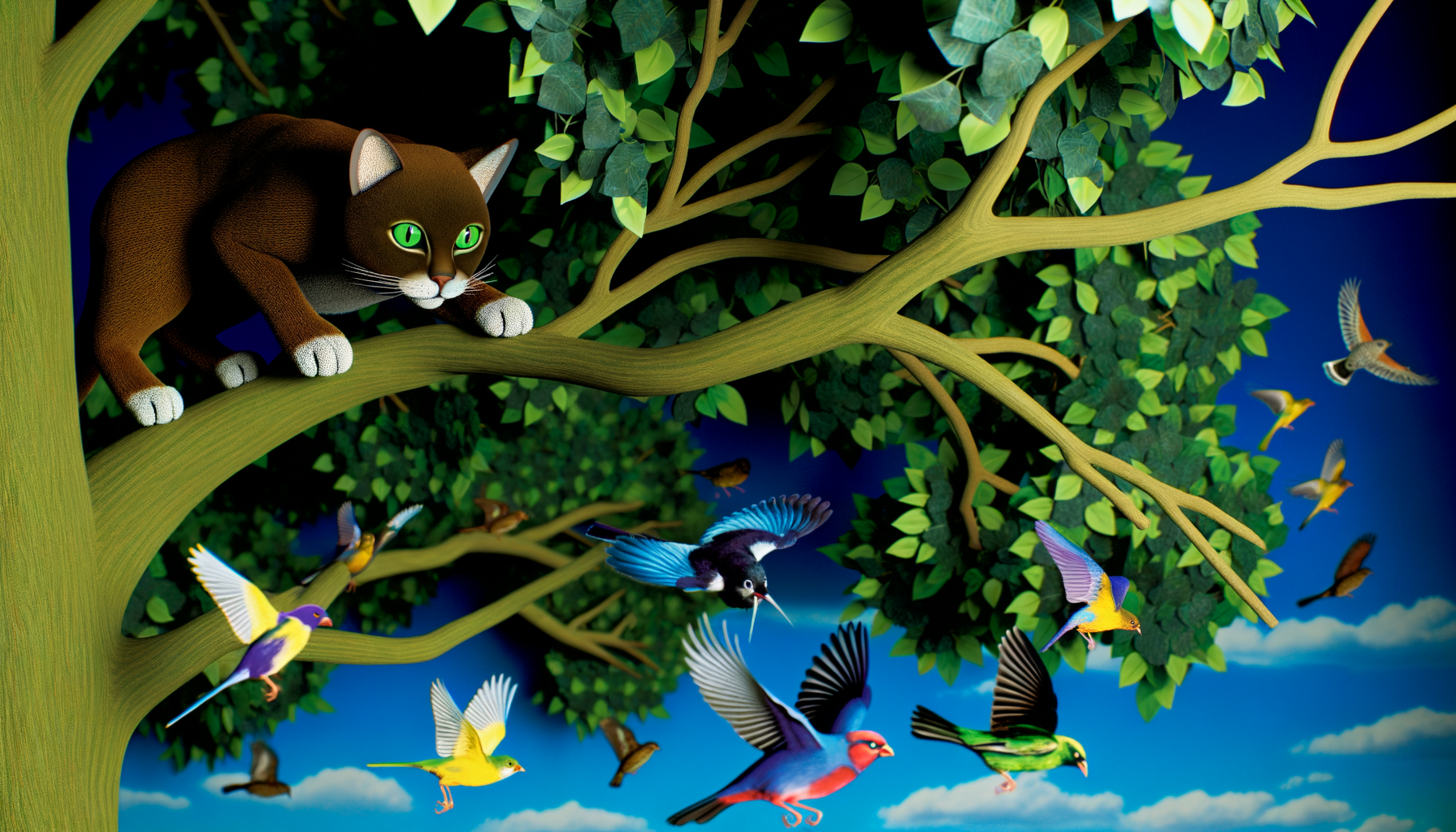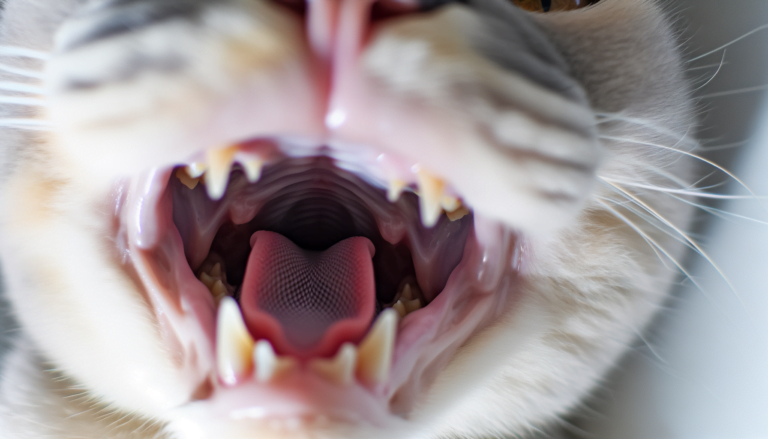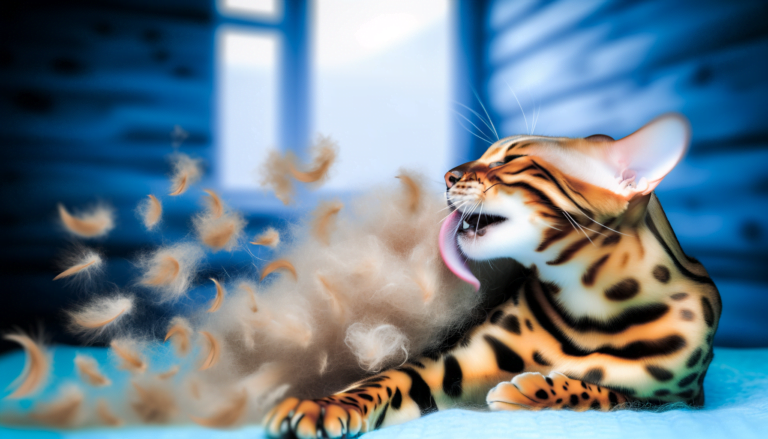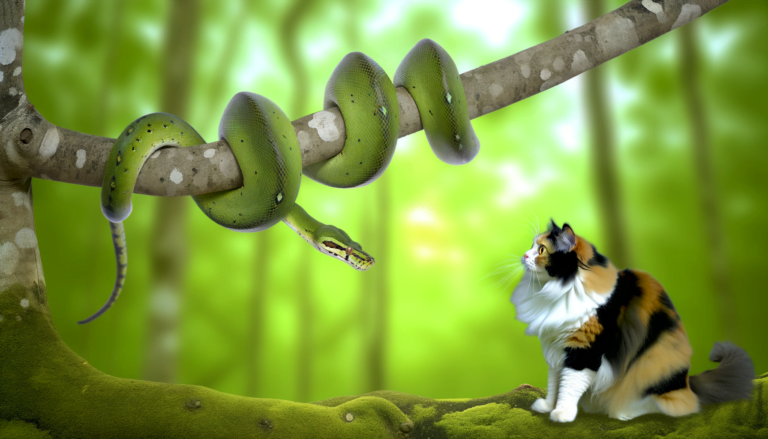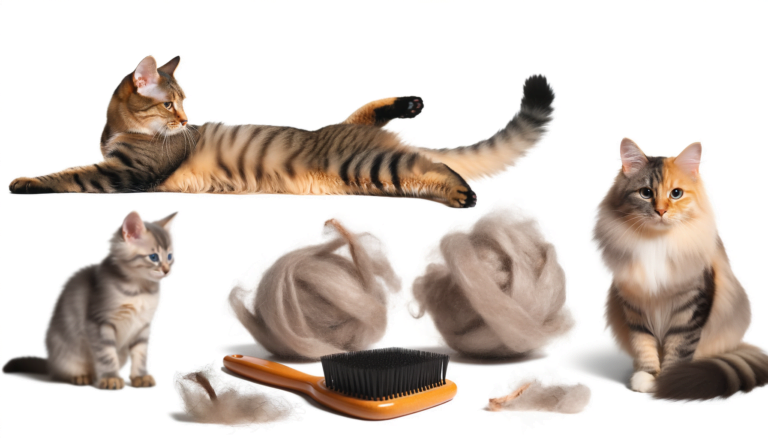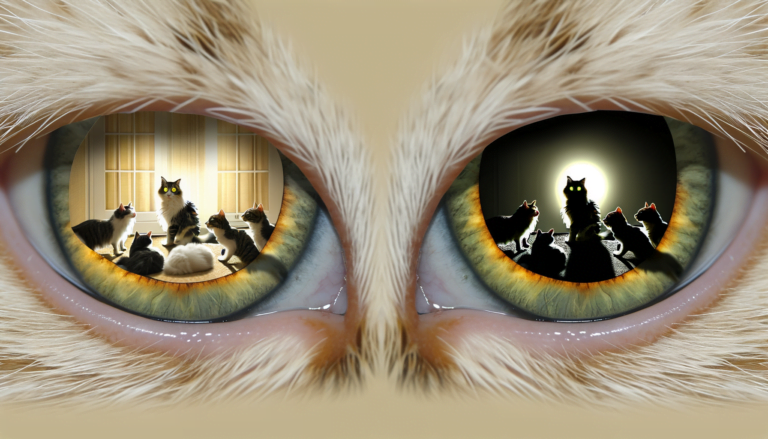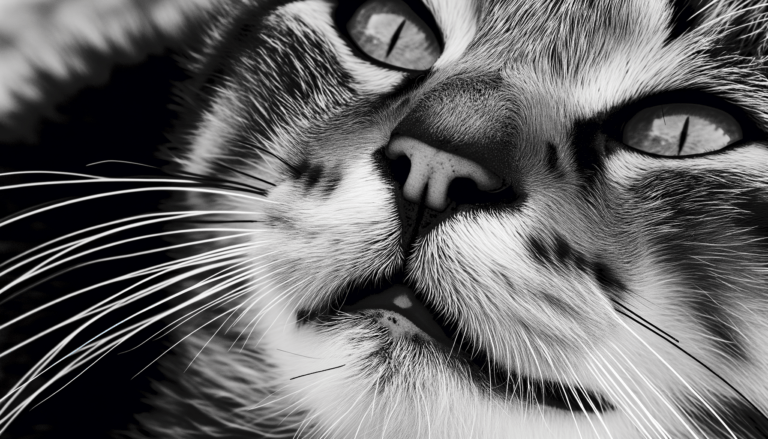Feline Predators: Unveiling the Truth behind Cats and their Bird Hunting Instincts
Yes, cats do eat birds. This behavior is a result of their natural instincts as predators. A bird is perceived as prey to cats, driven by their innate hunting nature, regardless of whether they are domesticated or wild. However, it should be noted, especially for pet owners, that while cats may engage in such behavior due to natural instincts, a diet of birds is not optimum for their health. Domestic cats should be provided with a nutritionally balanced diet, typically found in commercially prepared cat food.
Behavior and Supervision: Preventing Cats from Hunting Birds
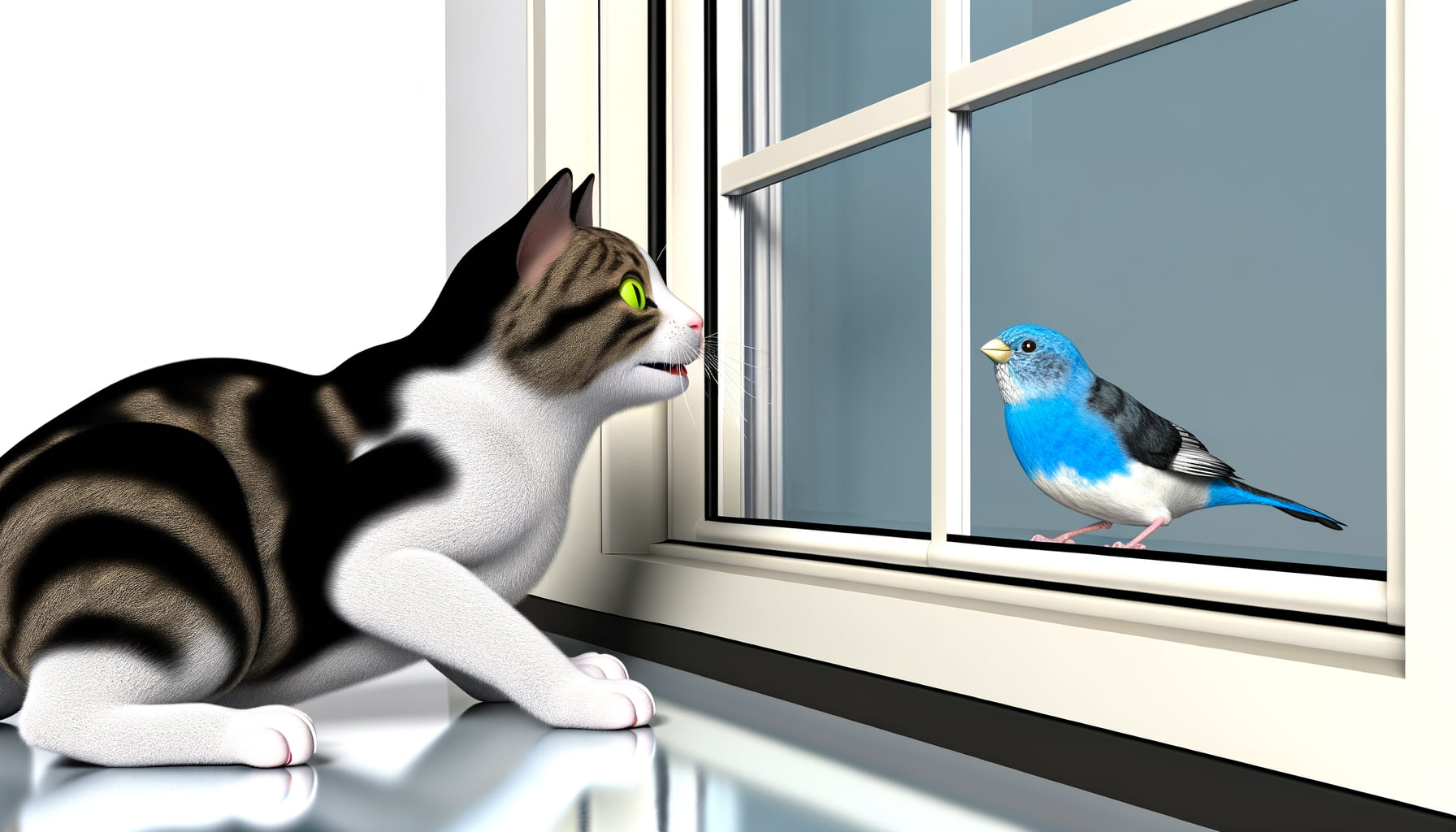
Domestic cats can significantly affect bird populations due to their natural hunting instincts. This impact can be reduced, to a certain extent, with careful management of feline behavior. A primary strategy would be environmental modification; this involves setting up your backyard in a bird-friendly manner. For instance, bird feeders should be set up high, beyond the reach of a leaping cat. Surrounding trees should be kept pruned, and bushes where cats can hide should be removed.
Another preventative measure includes keeping your cats indoors, notably at dawn and dusk when birds are most active. In certain circumstances, it might be applicable to leash-train your cat. This could maintain your cat’s outdoor access while limiting their ability to pounce on unsuspecting birds. Product solutions, like brightly colored collars, can also be used to alert birds to an approaching cat, providing them with the opportunity to escape.
Finally, it’s essential to provide cats with an outlet for their hunting instincts that doesn’t involve living creatures. Interactive toys that stimulate your cat’s predatory drive can be an excellent substitution. Cultivating these strategies can provide robust supervision and importantly, protect bird populations, while ensuring the well-being of your feline companions.
Cats and Their Dietary Preferences
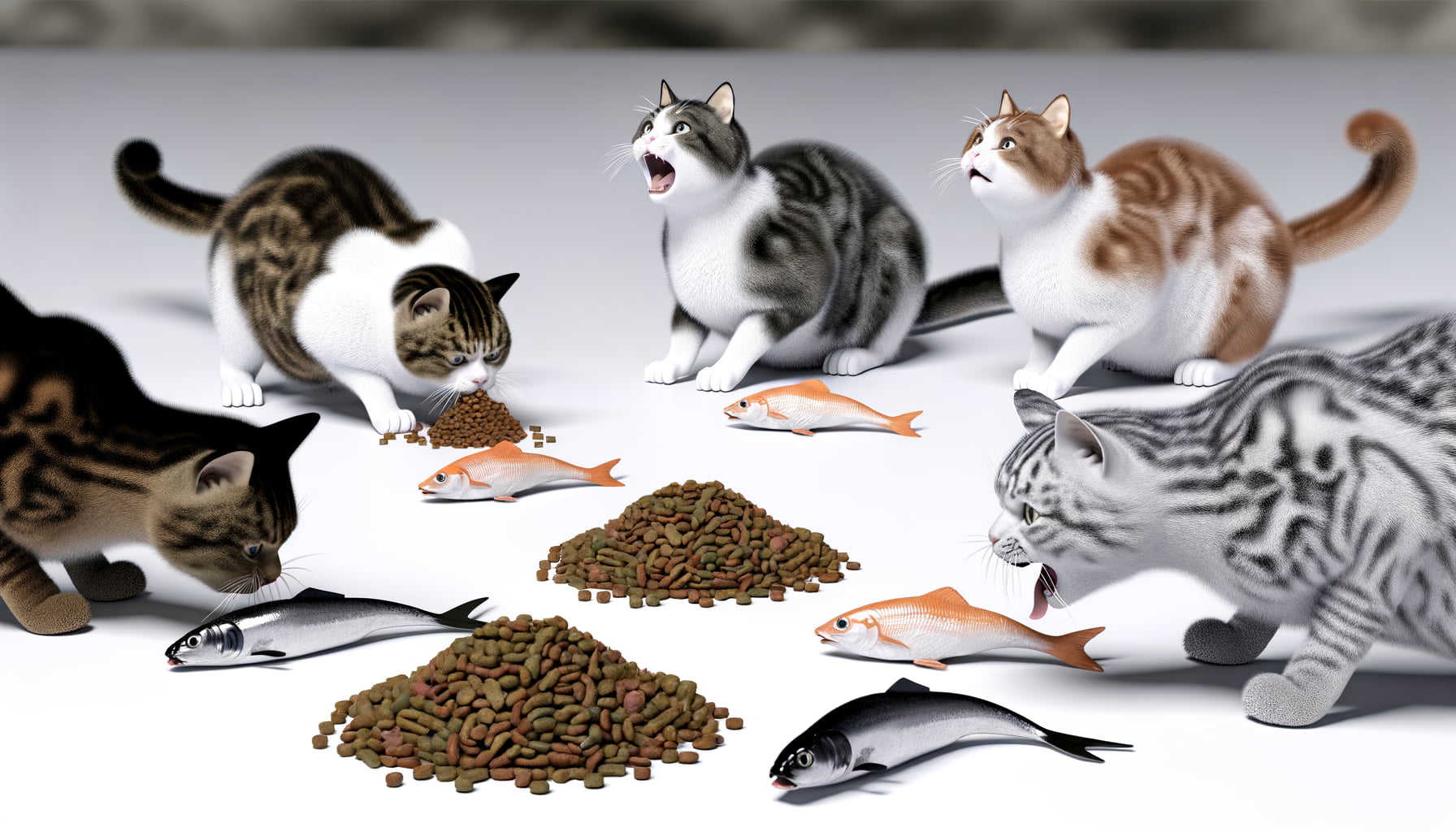
The feline dietary preference may seem elusive, but in reality, these stealth predators tend to have a surprisingly diverse food range. Cats have evolved to consume small prey, including a variety of small birds, rodents, and sometimes insects. This characteristic has been inherent in their species for a substantial period and is embedded in their predatory nature. Moreover, domestic cats, despite their household comfort and access to commercial cat food, often exhibit an inclination towards this preference, especially birds.
Many assume cats are strictly carnivorous, and while it’s true they thrive primarily on meat, cats also exhibit an unexpectedly adaptable diet. This adaptability emanates primarily from their need to survive in different environments and circumstances. Ultimately, it creates a certain level of variability in dietary patterns, thus maintaining a subtle harmony between perplexity and burstiness in the dietary behavior of cats.
Notably, while birds do form part of a cat’s diet, it’s essential to remember that this predilection generally depends on each individual cat’s habits, prey availability, and the cat’s previous hunting success. The hunting of birds by cats, although a natural behavior, can be minimized and redirected towards more sustainable feeding practices through responsible pet ownership.
Cat’s Natural Hunting Instincts
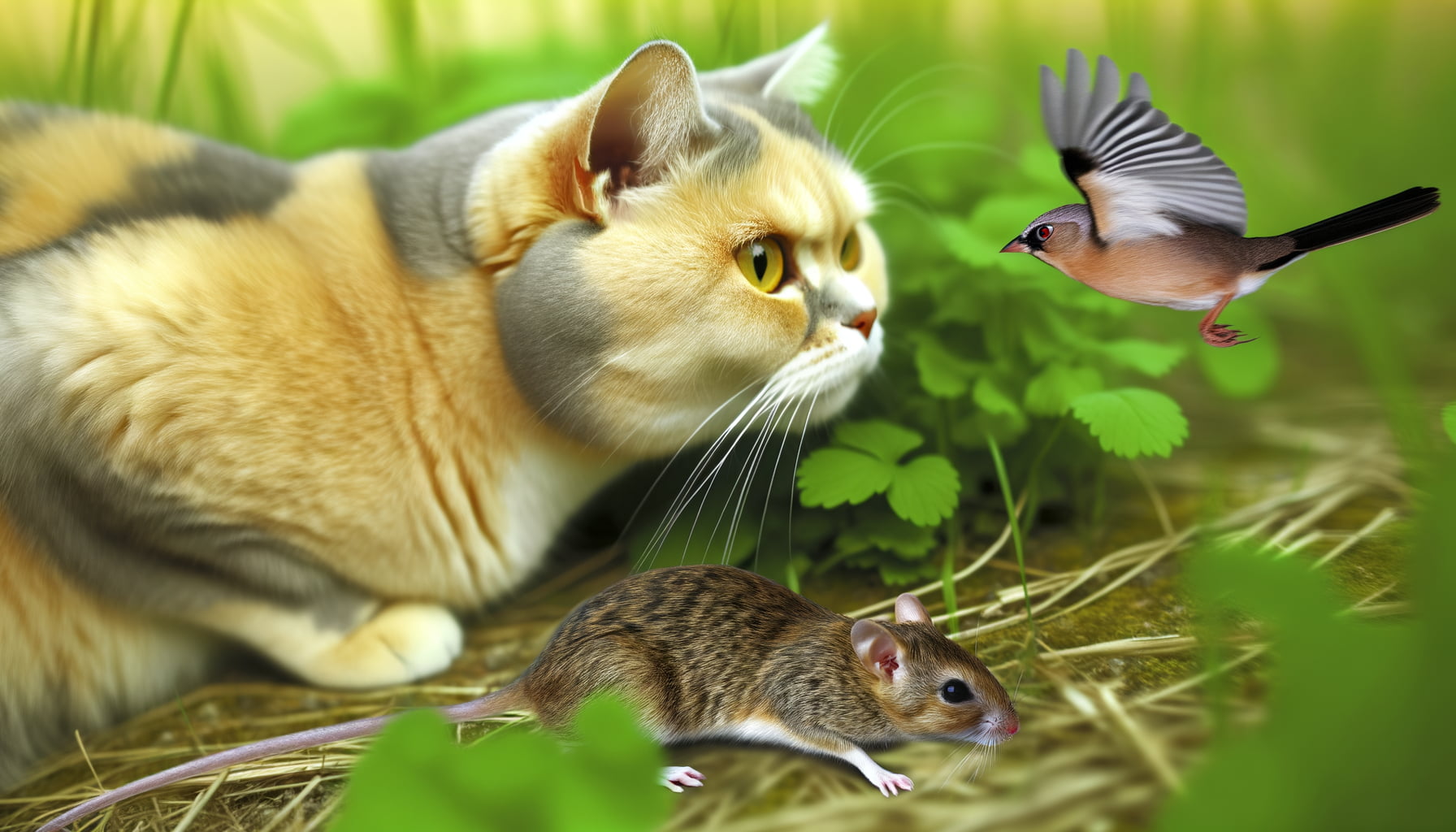
Known for their distinct characteristics, domestic cats harbor innate predatory instincts, traced back to their wild ancestors. Descendants of fierce predators, cats naturally carry the propensity for hunting. Cat’s natural hunting instincts are not fueled primarily by hunger but by the irresistible trigger of a potential prey’s movement. This drive makes them formidable hunters, adept at stalking, pouncing, and capturing their quarry.
In particular, cats are much attracted to smaller moving creatures, predominantly birds. These feathered creatures, with their flutters and flight, naturally captivate feline curiosity and hunting impulses. The tempting prospect of the chase, combined with their finely honed predatory skills – sharp retractable claws, keen eyesight, and swift agility – make cats remarkably effective bird hunters.
The stimulation cats glean from hunting is both physical and mental. This aspect reveals that the act of hunting is more than just a survival instinct – it is an essential form of mental stimulation and physical exercise for them. Understanding this intrinsic facet of their behavior could help us to better manage our feline friends and mitigate the impact on susceptible bird populations.
Impact of Cats on Bird Populations
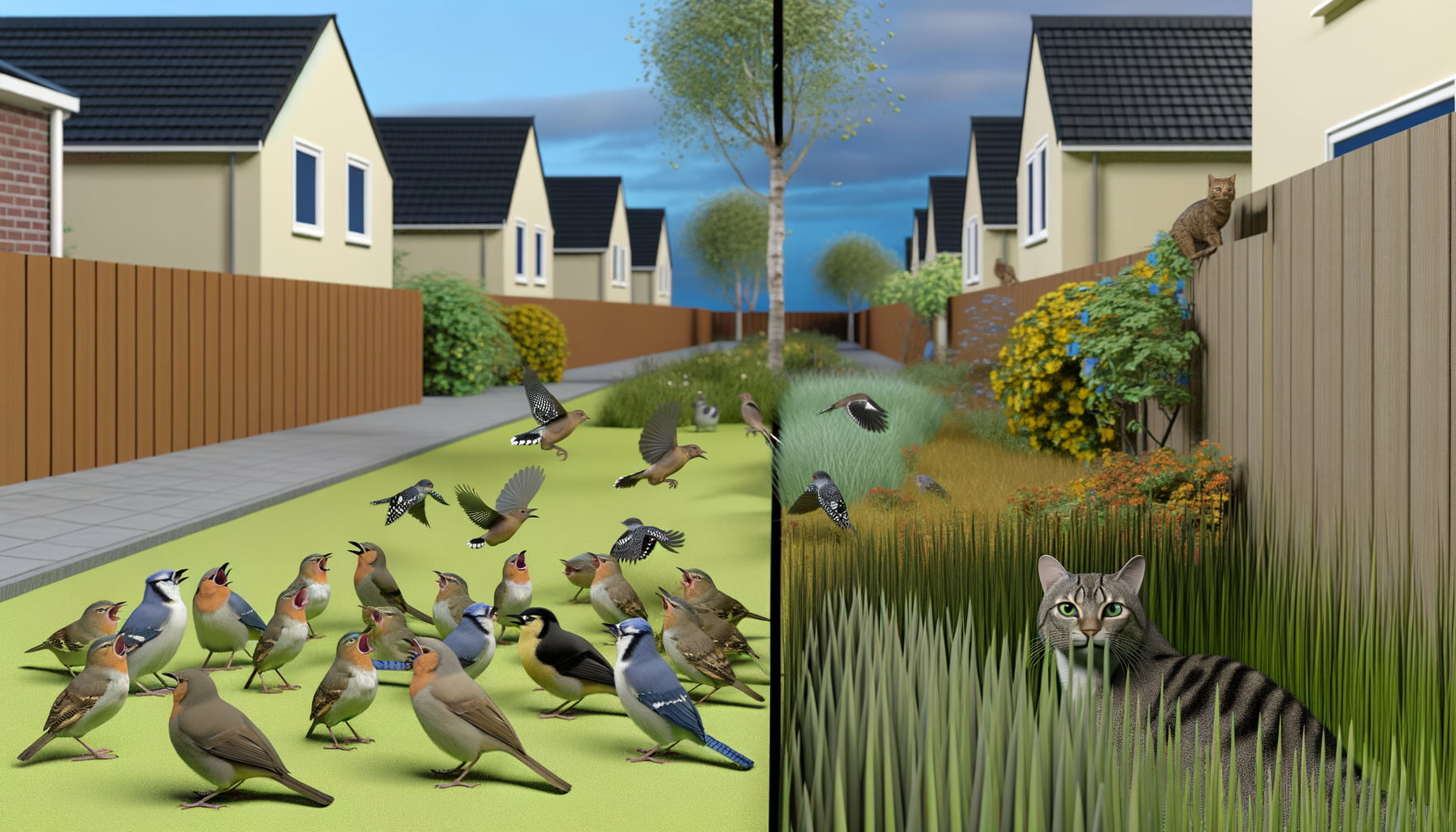
Many bird enthusiasts often express concern over the impact of cats on bird populations. Domestic cats, while beloved as pets, harbor innate predatory instincts that lead them to hunt birds. This could cause a considerable imbalance in local bird populations and ecosystems over time.
Studies show that the number of birds falling prey to house cats each year is surprisingly high. These figures are particularly concerning in urban and suburban areas, where bird deaths can significantly affect the diversity of species. Additionally, cats usually hunt regardless of their actual hunger levels, as their pursuit of birds tends to be more about instinct than necessity.
While some experts argue that the influence of cats on bird populations might not be as significant globally, the localized effect could be profound. It is thus essential for cat caretakers to introduce deterrents such as collar bells or keep their feline companions indoors, especially during bird nesting seasons. A balanced co-existence can certainly be achieved with responsible pet ownership.
Conclusion
After delving into the intricate world of feline predators and their bird hunting instincts, it is clear that cats are indeed natural-born hunters with a deeply ingrained instinct to chase and capture their prey. Their stealthy and agile nature makes them formidable predators in the wild, showcasing their impressive hunting skills.
As we unveil the truth behind cats and their bird hunting instincts, it is essential to appreciate the fascinating interplay between these predators and their environment. Understanding the natural behaviors of our feline friends sheds light on their innate instincts and highlights the importance of responsible pet ownership to ensure the safety of our feathered friends.
